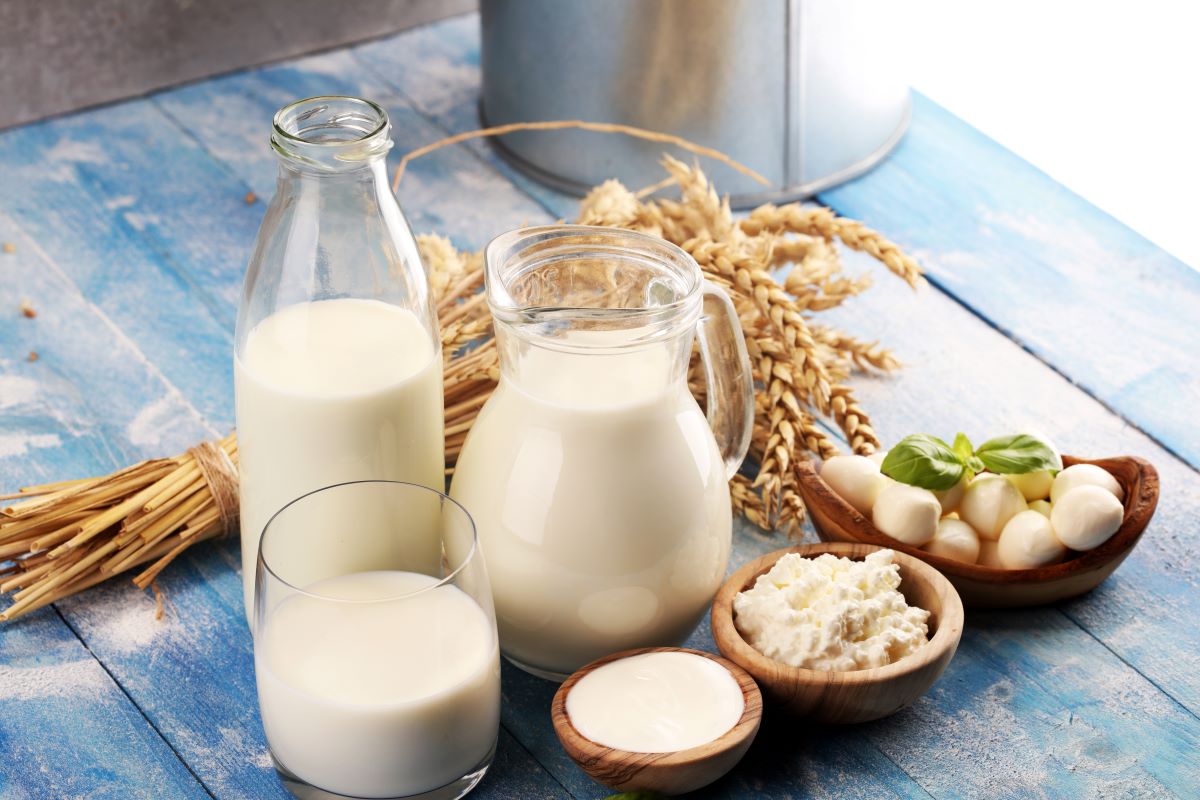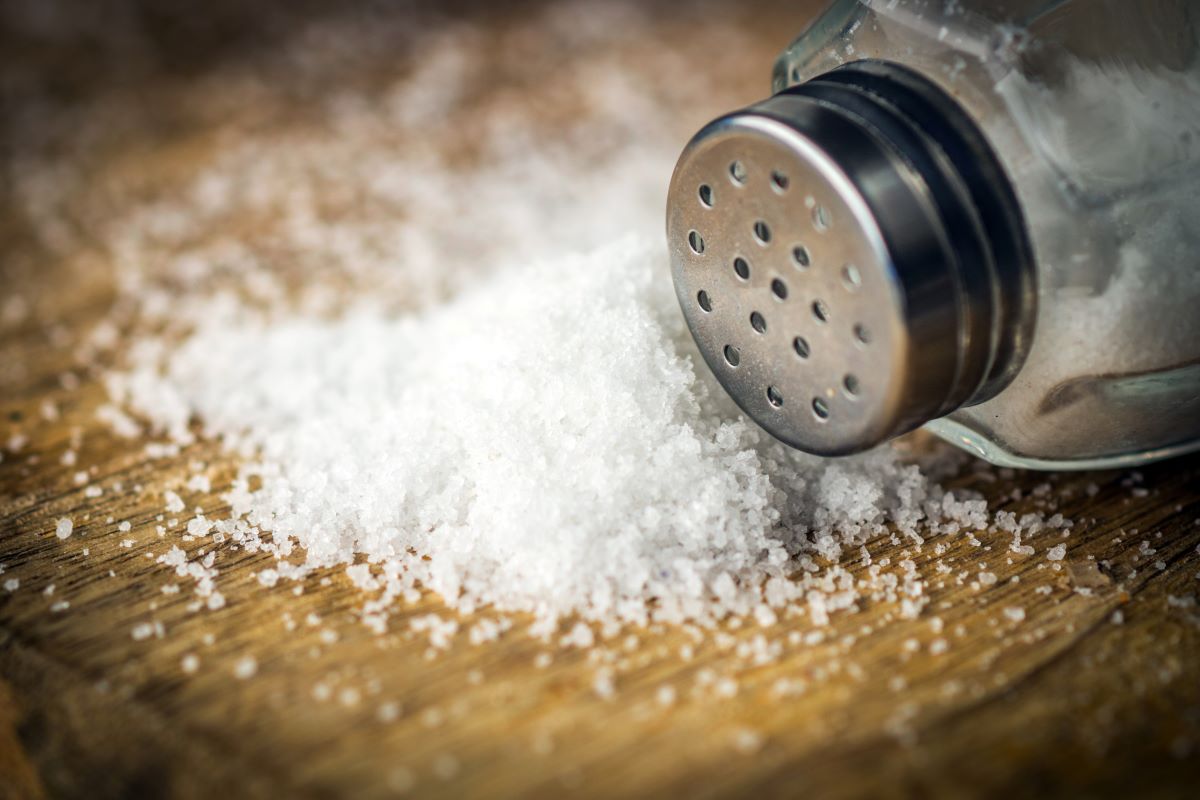Intro
When it comes to maintaining optimal prostate health, diet plays a crucial role. Certain foods can either promote or hinder prostate well-being. In this informative guide, we will explore the ten worst foods for prostate health to help you make informed decisions about your diet and overall wellness.
The Hidden Dangers in Red and Processed Meats
Diving into the world of delicious dinners and backyard barbecues, it’s hard to resist the allure of red and processed meats. However, it’s important to be aware of how these choices might not be doing our prostate any favors. Studies have shown that a regular diet high in these types of meats could lead to an increased risk of prostate cancer and other health concerns specific to the prostate gland.

Red meats, such as beef, pork, and lamb, along with processed varieties like sausages, bacon, and deli meats, contain high levels of saturated fats. These fats can contribute to inflammation and other adverse health effects when consumed in large quantities. Additionally, the preparation of these meats at high temperatures can lead to the formation of harmful compounds that may exacerbate the risk to prostate health.
While red and processed meats are definitely one of the top ten worst foods for prostate health, It’s not about cutting out these foods entirely; moderation is key. For those who enjoy these types of meats, considering leaner cuts, reducing portion sizes, and limiting frequency can make a significant difference. There’s also a wonderful array of alternative protein sources to explore, including plant-based options that are not only kinder to your prostate but can also diversify and enrich your diet.
Making informed choices about the food we eat is a powerful step toward better health. By understanding the impact of red and processed meats on the prostate, we can make choices that support our body’s well-being, allowing us to enjoy life’s culinary pleasures in a way that’s both enjoyable and mindful of our health.
High-Fat Dairy Products and Prostate Health
Navigating the dairy aisle at your local grocery store with prostate health in mind can sometimes feel like a daunting task. The creamy textures and rich flavors of high-fat dairy products have a comforting appeal, yet it’s essential to consider how they might affect our body’s well-being, especially the prostate. High-fat dairy items, including whole milk, cream, and certain cheeses, are loaded with saturated fats. While these fats are a source of energy, in excess, they’ve been linked to inflammation and an increased risk of prostate issues.

For individuals looking to avoid any of these ten worst foods for prostate health, the journey doesn’t have to mean saying goodbye to dairy altogether. The key lies in making smarter choices. Opting for low-fat or fat-free dairy options provides a way to enjoy the calcium and protein benefits of dairy without the high saturated fat content. For those adventurous in palate and mindful of health, exploring non-dairy alternatives such as almond milk, soy milk, and oat milk can open up new culinary possibilities. These alternatives not only provide a diverse range of flavors but also come packed with their own unique set of nutrients beneficial for overall health.
Incorporating these changes doesn’t mean compromising on taste or enjoyment. It’s about adjusting our approach to food, embracing variety, and making choices that align with our health goals. Each small step towards choosing healthier dairy options is a stride towards supporting our prostate health and enhancing our quality of life.
The Sugar Trap: How Sweets Affect Your Prostate
Indulging in sweet treats is one of life’s simple pleasures, but when it comes to prostate health, it’s essential to navigate the sugar trap with caution. Sugary foods and beverages, such as candies, pastries, sodas, and even some fruit juices, can be more than just a moment on the lips; they can lead to long-term health implications for the prostate.

The connection between high sugar intake and prostate health concerns lies in the body’s response to sugar. Excessive sugar consumption can lead to a spike in insulin levels and inflammation throughout the body, including the prostate area. This inflammation can be a contributing factor to the development of prostate issues over time. Furthermore, diets high in sugar can contribute to weight gain and obesity, which are known risk factors for developing prostate conditions, including prostate cancer.
Understanding this connection doesn’t mean you have to deny yourself the occasional sweet delight. Again, when trying to avoid the ten worst foods for prostate health, the key is balance and moderation. Paying attention to the quantity and the quality of the sugars you consume can make a significant difference. Opting for natural sources of sweetness, like fruits, which also offer fiber, vitamins, and antioxidants, can satisfy your sweet tooth while nourishing your body and supporting prostate health.
Exploring alternative sweeteners, such as stevia or honey, in moderation, can also be a way to reduce your refined sugar intake without giving up on taste. Being mindful of hidden sugars in processed foods and choosing whole, unprocessed options can further help in managing your sugar intake.
Navigating the sugar trap with awareness and intention is a proactive step towards safeguarding your prostate health, ensuring that you can enjoy life’s sweet moments without compromising your well-being.
The Role of Deep-Fried Foods in Prostate Health
The allure of deep-fried foods is undeniable. The crispy texture and satisfying crunch make dishes like French fries, onion rings, and fried chicken hard to resist. However, it’s important to consider how these indulgences might be impacting our prostate health. Deep-fried foods are typically cooked in oils that are high in unhealthy fats, including trans fats and saturated fats. These fats don’t just add to our waistlines; they play a significant role in contributing to inflammation within our bodies.

Inflammation is a known risk factor for many health issues, including those affecting the prostate. When we consume a diet high in deep-fried foods, we’re not just challenging our heart health but potentially our prostate’s well-being too. The intense heat from the frying process also changes the chemical structure of the oils, leading to the formation of harmful compounds that can exacerbate these health risks.
But fear not, for enjoying your favorite meals doesn’t have to be a health hazard. Making a shift towards cooking methods such as grilling, baking, or air-frying can offer a healthier alternative that still satisfies those cravings. These methods significantly reduce the unhealthy fat content and minimize the formation of harmful compounds. Experimenting with herbs and spices can also add delightful flavors to dishes, making the transition to healthier cooking methods a tasty adventure.
Embracing these alternatives doesn’t mean you have to give up on crunch and flavor. It’s about finding balance and making conscious choices that benefit your prostate and overall health. By exploring new cooking techniques and recipes, you can enjoy your meals with peace of mind, knowing you’re taking care of your body in every bite.
The Connection Between Alcohol and Prostate Well-being
Navigating social gatherings and unwinding after a long day often includes the enjoyment of an alcoholic beverage. While there’s a place for moderation, understanding the impact of alcohol on prostate health is crucial. Regular and excessive consumption of alcohol may not only pose risks to overall health but specifically can have adverse effects on prostate well-being. Alcohol can potentially disrupt hormone levels in the body, including testosterone and estrogen, which play a significant role in prostate health.

The relationship between alcohol and the prostate might not be entirely straightforward, but it’s clear that heavy drinking can lead to undesirable outcomes, including increasing the risk of developing prostate issues. This is partly due to alcohol’s role in affecting liver function, which in turn can influence hormone regulation, as well as its contribution to systemic inflammation, a known factor in many health conditions.
As is the case with all of the foods on our list of top ten worst foods for prostate health, the focus should be on moderation. This means limiting intake to moderate levels as defined by health guidelines, which often suggest no more than two drinks per day for men. Additionally, opting for days without alcohol can give your body a chance to recover, reducing potential stress on the prostate.
Exploring alcohol-free alternatives can also be a delightful journey. Many non-alcoholic options mimic the complexity and enjoyment of their alcoholic counterparts, offering a satisfying way to partake in social rituals without compromising prostate health. From sparkling waters infused with herbs to non-alcoholic beers and wines, the possibilities for enjoying a drink without the alcohol content are endless and ever-growing.
Understanding the connection between alcohol and prostate health empowers you to make choices that align with your wellness goals, enabling you to enjoy life’s celebratory moments while nurturing your body’s needs.
White Bread, Pasta, and Prostate Health: The Refined Grains Problem
Navigating the aisles of your favorite grocery store, it’s easy to be drawn to the comfort and convenience of white bread, pasta, and other refined grain products. These staples have become a go-to for quick meals and satisfying snacks. However, when considering their impact on prostate health, it’s essential to delve deeper into how these foods fit into a health-conscious diet.

Refined grains undergo a process that strips away the bran and germ, leading to a loss of natural fiber, vitamins, and minerals. This not only diminishes their nutritional value but also affects how our bodies manage glucose and insulin levels after consumption. The rapid absorption of these processed grains can cause spikes in blood sugar and insulin, a scenario less than ideal for maintaining the delicate balance of hormones that support prostate health.
Moreover, the low fiber content in white bread and pasta might not provide the same sense of fullness and satisfaction that whole grains do, potentially leading to overeating and weight gain. As weight management plays a crucial role in reducing the risk of prostate and other health issues, opting for whole grains can be a smart move.
Whole grains, such as brown rice, quinoa, barley, and whole wheat options, offer a robust package of nutrients, including fiber, which supports not just prostate health but also heart health and digestive well-being. Incorporating these healthier grain choices into your diet can be as simple as swapping out white rice for a colorful quinoa salad or choosing whole wheat bread for your morning toast.
Embracing whole grains doesn’t mean sacrificing flavor or texture. On the contrary, it opens up a world of culinary possibilities that not only delight the palate but also contribute to a healthier prostate and overall lifestyle. By making mindful choices about the grains we consume, we take an important step toward nourishing our bodies and safeguarding our health.
The Impact of Spicy Foods on Prostate Health
For lovers of heat and spice, navigating the impact of spicy foods on prostate health might require a delicate balance. While these flavorful additions can elevate a dish from mundane to mouthwatering, it’s important to consider how they might resonate beyond the taste buds, particularly with prostate well-being. Spicy foods have the potential to irritate the urinary tract and prostate, leading to discomfort and exacerbating symptoms in those with existing prostate conditions.

This isn’t to say spice enthusiasts need to forgo their favorite fiery flavors entirely. The key is moderation and awareness of one’s body responses. Observing how your system reacts to spicy foods and adjusting intake accordingly can make a world of difference. For individuals with sensitive systems or known prostate issues, exploring milder spices and herbs can offer an array of delightful culinary experiences without the added risk of irritation.
Avoiding the top ten worst foods for prostate health and incorporating anti-inflammatory foods into your diet, alongside moderate spice consumption can also play a supportive role in maintaining prostate health. By paying attention to how spicy foods affect your body and making mindful choices, you can enjoy the zest of life without compromising on wellness.
Caffeine and Your Prostate: What You Need to Know
Navigating the world of morning pick-me-ups and afternoon boosts, caffeine plays a central role in many of our diets. Found in our beloved coffees, teas, and even energy drinks, it’s a familiar source of energy and comfort. However, when considering prostate health, the relationship with caffeine deserves a closer look. Caffeine has properties that may irritate the bladder and, by extension, could pose challenges to maintaining optimal prostate health. It’s particularly noteworthy for those experiencing or at risk of prostate issues, as it can exacerbate symptoms such as increased urinary frequency and urgency.

That said, moderation is key. Enjoying your morning coffee or tea doesn’t have to be off-limits. Being mindful of how much caffeine you’re consuming and recognizing your body’s responses can help manage its impact. Alternating caffeinated beverages with decaffeinated versions or herbal teas can also be a beneficial strategy. Additionally, ensuring adequate water intake can dilute the potential irritants and support overall urinary tract health.
In essence, by tuning into your body’s signals and moderating your caffeine intake, you can enjoy the benefits of your favorite beverages while being considerate of your prostate health.
The Problem with Excessive Salt Intake
Diving into the world of flavor, salt is a staple on our tables and in our cooking, enhancing taste and preserving food. However, when it comes to our health, particularly prostate health, salt should be considered near the top of the list when it comes to the ten worst foods for prostate health. The saying “too much of a good thing” couldn’t be more accurate. High salt consumption is linked to an array of health issues, including increased blood pressure. This, in turn, can strain our cardiovascular system, but what’s less commonly discussed is how this pressure affects our prostate health. Elevated blood pressure from high salt intake contributes to inflammation, a condition closely tied to various prostate problems.

Modifying our salt use doesn’t mean we’re doomed to a life of bland meals. Exploring the rich world of herbs and spices can not only reduce our reliance on salt but also introduce us to new dimensions of flavor that salt alone could never achieve. When cooking at home, controlling the amount of salt added to dishes allows us to manage our intake while still satisfying our taste buds. Opting for fresh or frozen produce over canned varieties, which often contain added salt for preservation, is another strategy to lower our sodium consumption.
In the journey to safeguard our prostate health, understanding the role of salt and finding a healthy balance is key. By making conscious choices about how we season our food, we can enjoy delicious meals that support our well-being.
Hydrogenated Oils and Trans Fats: Silent Threats to Prostate Health
In the landscape of dietary choices, hydrogenated oils and trans fats loom as hidden hazards, particularly when it comes to protecting the health of your prostate. Found in many processed foods, from baked goods to snack foods, these fats are engineered to enhance shelf life but at a high cost to our health.

Unlike the natural fats found in avocados or olive oil, which nourish and support our body’s functions, hydrogenated oils and trans fats contribute to systemic inflammation. This inflammation doesn’t just affect our waistlines or heart; it can also have a direct impact on prostate health, creating an environment that’s less than ideal for maintaining its well-being. Steering clear of these processed fats and embracing whole, unprocessed foods rich in natural fats is a wise strategy for anyone looking to support their prostate health. It’s a simple yet effective change that can make a profound difference in your pursuit of a balanced and healthful diet.



